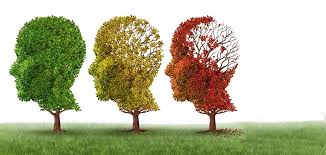Dementia is a neurodegenerative disorder where the brain gradually loses several aspects of its function. While the most common symptom is memory loss, there is gradual impairment of several other brain functions where often the person ends up being unable to look after his own affairs.
Dementia And Its Impact On Day To Day Activities
- Maintaining Health: This includes both physical and mental health. Dementia is a process of deterioration and it is expected that functions will deteriorate. However, with correct planning patients will be able to maintain their independence and function for a long time. Hence it is useful for such patients to get regular check up and take medicines regularly. Light physical exercise like walking helps. Playing games like crosswords, chess, card games which involve working the mind is extremely helpful. Regularly reading books and seeing photos of yesteryears are also thought to preserve brain function for longer.
- Driving: This is a difficult issue in dementia patients as there is no clear guideline or a test to say when driving is not anymore advisable. Dementia being a progressive illness at some point all patients will be at risk if they continue to drive. This is a decision that has to be taken jointly by the doctor along with the patient and his or her family.
- Medication: Dementia patients will often get confused with there medication and may not take them, or take too many. A family member or care giver must monitor this regularly as it is important for their well being that they take the correct medication in the right manner.
- Cooking: As dementia involves the patient being forgetful and often having reduced attention span, cooking can be quite dangerous for these patients. Just like driving there is no definite test to say when a patient should stop and therefore a difficult decision. The patient should be regularly supervised during activities involving gas cooking. The decision to stop cooking should be taken jointly between the doctor and the patient or his or her family if there are concerns arising from such supervisions.
Tips For Family members and Caregivers for Patients with Dementia
Dementia is debilitating and can impose an enormous burden on patients and their families. People with dementia become less able to care for themselves as the condition progresses. Dr. Dwaipayan Sen share some tips that may help their families to cope include the following:
- Be patient when responding to repetitive questions, behaviours, or statements.
- Try not to argue or confront persons with dementia when they express mistaken ideas or facts. Gently remind them of the inaccuracy. If they continue to believe in the mistaken ideas, change the subject or distract them in some way. Continuing to argue or confrontation may make the patient aggressive or agitated.
- Write down daily instructions for them to follow. Write down instructions for usual tasks (i.e. the telephone, microwave, etc).
- Establish night routines to manage behavioural problems, which are often worst at night. Leave a night light on in the person’s bedroom.
- Avoid major changes to the home environment.
- Employ safety measures in the home, such as locks on medicine cabinets, keep furniture in the same place to prevent falls.
- Speak slowly, present only one idea at a time, and be patient when waiting for responses.
- Encourage physical activity and exercise. A daily walk can help prevent physical decline and improve behavioural problems.
If you have any symptoms or questions related to Dementia, always ask a doctor.

